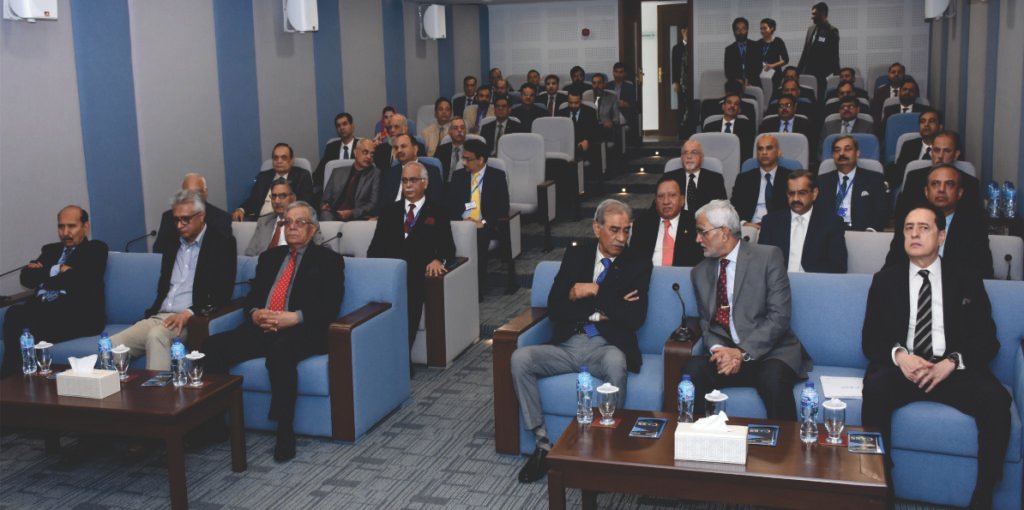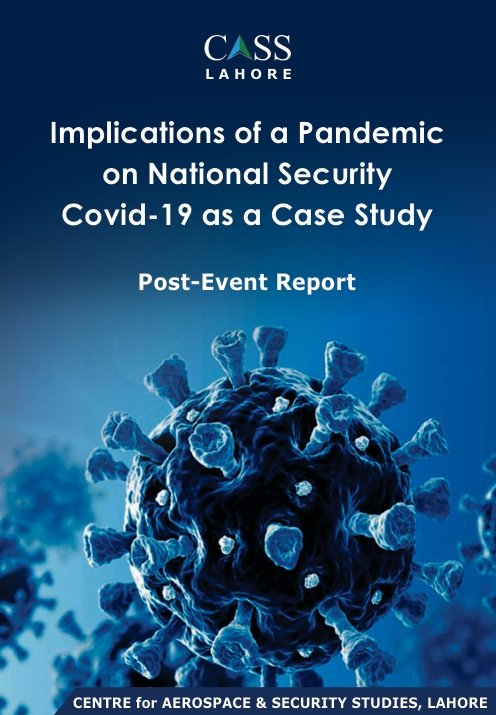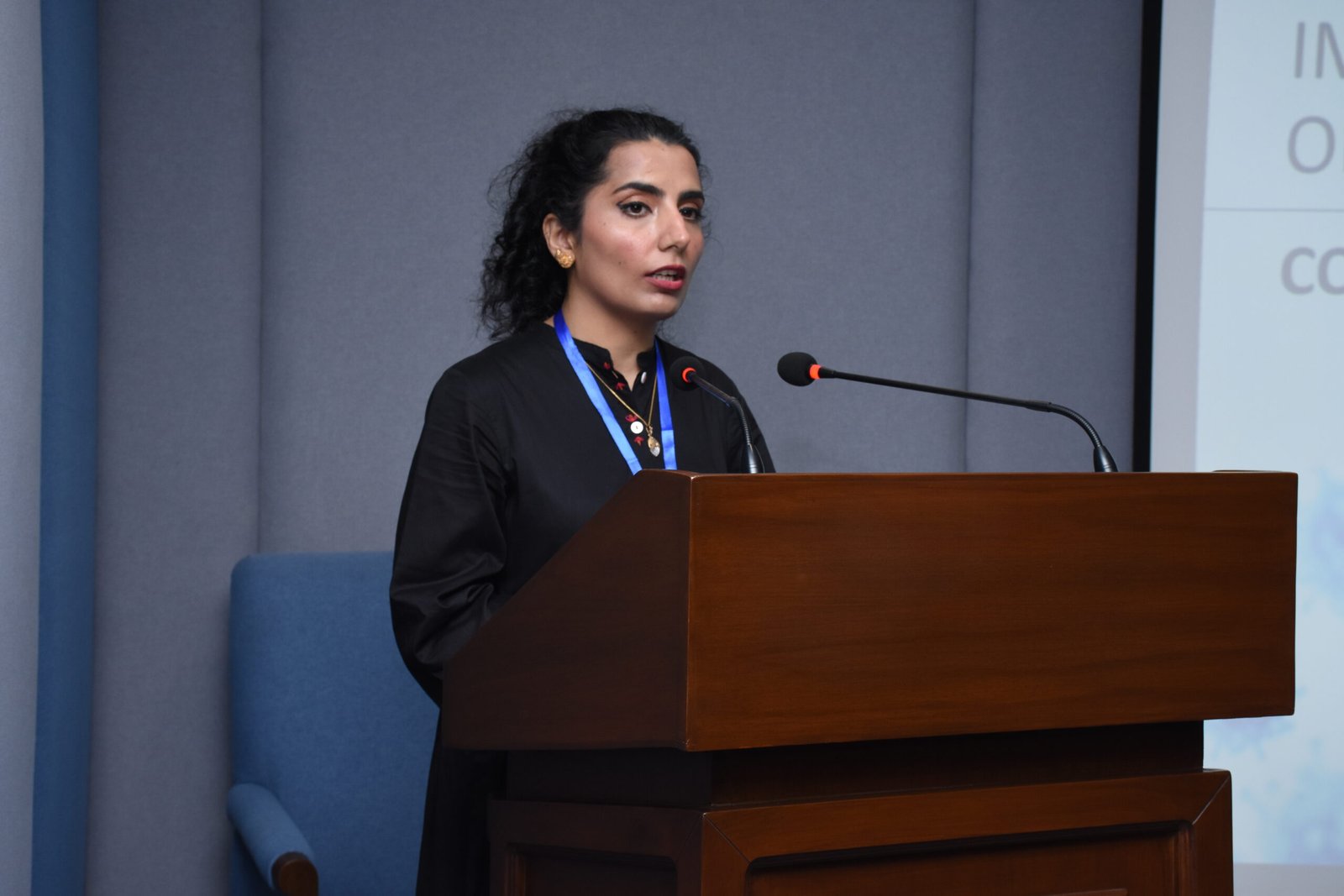
Seminar
Implication of a Pandemic On National Security: Covid 19 as a Case Study
The COVID-19 pandemic has had a profound impact on human security. The most obvious is the cost to human health: 755 million confirmed cases, and 6.8 million confirmed deaths. COVID-19 took place in a highly globalised and interdependent world with complex supply chains, an incredibly high volume of travel, deeply interlinked economies, and escalating superpower competition. In an incredibly short amount of time, COVID-19 disrupted the national security calculus in unprecedented ways.
The repercussions of the pandemic have been severe and are still being felt: a projected cumulative loss of about US $13.8 trillion to the global economy through 2024, supply chain disruptions, job losses triggering recessions, and social unrest fuelling social upheaval. The pandemic caused political, economic, health, and social crises at the global level. It forced nations to re-evaluate concepts of national security and recalibrate to factor in large-scale, non-traditional threats of a biological nature. COVID-19 also brought focus to the empirical threat of the dual-use advancements in biotechnology, gene editing, and DNA modification techniques to create pathogens (viruses/bacteria) with enhanced killing characteristics that can be called next-generation bioweapons.
In Pakistan, there were around 1.5 million confirmed COVID-19 cases and 30,640 deaths. The socioeconomic impact of COVID-19 has been severe, causing a contraction in GDP and putting serious pressure on the country’s threadbare health infrastructure. With the world’s fifth-largest population, incredibly high urban population density, and a healthcare system already under great strain, Pakistan faced a monumental crisis with multi-layered implications, particularly on the healthcare and the economic front.
With this contextual backdrop, a seminar at CASS, Lahore, was conducted on 21 March 2023 on the topic of “The Impact of a Pandemic on National Security: Taking COVID-19 as a Case Study”. The topic was selected to examine the multi-faceted impact of COVID-19 on national security, to analyse the constraints of past responses, and to brainstorm future strategies to manage long-term risks to national security. The other intent was to explore the possible development of “Next Generation Bioweapons” in light of advancements in biotechnology and genetic studies.
The Seminar was chaired by Air Marshal Asim Suleiman, President CASS Lahore, and was moderated by researcher Sabina Babar. The four seminar speakers included two eminent guest speakers and two in-house speakers from CASS, Lahore.
- Dr Faisal Sultan, CEO of Shaukat Khanum Memorial Cancer Hospital
- Prof Col Dr Muhammad Ashraf Chaudhry, HOD of Community Medicine at CMH Lahore Medical College
- AVM M Z Faisal (Retd), Director of Warfare and Aerospace
- Dr Ghulam Mohey-ud-din, Director of Economic Affairs.

Key Takeaways
COVID-19, declared a health emergency in January 2020 and an epidemic in March, rapidly spread from Wuhan to 180 countries within 100 days. While it shares characteristics of an ideal biological weapon, no scientific evidence suggests it was deliberately created as one. In Pakistan, the National Command Operations Centre was replaced by the Centre for Communicable Diseases, highlighting challenges in coordinating pandemic responses due to devolved federal structures. Globally, COVID-19 caused 757 million confirmed cases and 6.85 million deaths, reducing life expectancy by two years, with significant impacts on healthcare systems, including complications like organ failure in 5% of patients. The pandemic also caused a global economic decline, with a surge in debt, job losses, and a drop in global trade. National security perspectives shifted as pandemics highlighted the need for self-reliance to protect vital resources. The rise of civil unrest and concerns about next-generation bioweapons, genetically modified to target specific groups or infrastructure, further underscored the increasing vulnerability to biological threats.
Policy Considerations
Policy recommendations for Pakistan include strengthening the 1972 Biological Weapon Convention to improve transparency, verification, and prevent the misuse of biotechnology. A national biodefence strategy should be formulated, akin to the US model, to address biological threats comprehensively. The National Disaster Management Authority (NDMA) Act should be reviewed to enhance its legal framework, mandate, and accountability. Economically, Pakistan should implement a 15-year growth plan, supported by fiscal and monetary policies that allow for economic stimulus and financial stability. Social protection systems, such as cash transfers and unemployment benefits, must be strengthened. Healthcare reforms include prioritizing the staffing and resourcing of epidemic and disease control centres, overhauling the Drug Regulatory Authority, improving health data systems, reducing vaccine dependency by boosting domestic production, and increasing public health funding to 4% of GDP. Additionally, annual mock drills should be conducted to improve pandemic response capabilities.

Post Event Report
A comprehensive overview featuring key insights, expert discussions, and strategic takeaways from the event.
Explore speaker highlights, recommendations, media coverage, and event photographs.
Guest Speakers

Air Vice Marshal M Z Faisal (Retd)
Director, Warfare and Aerospace CASS Lahore
Dr Muhammad Ashraf Chaudhry
Professor and HOD, Community Medicine CMH Lahore Medical College


Dr Faisal Sultan
CEO, Shaukat Khanum Memorial Cancer Hospital and Research Centre
Dr Ghulam Mohey-ud-din
Director, Economic Affairs CASS Lahore

CASS Speakers

Air Marshal Asim Suleiman (Retd)
President CASS, Lahore
Master of the Ceremony
Researcher, CASS Lahore
Sabina Babar

CASS LAhore

The Centre for Aerospace & Security Studies (CASS) was established in July 2021 to inform policymakers and the public about issues related to aerospace and security from an independent, non-partisan and future-centric analytical lens.


